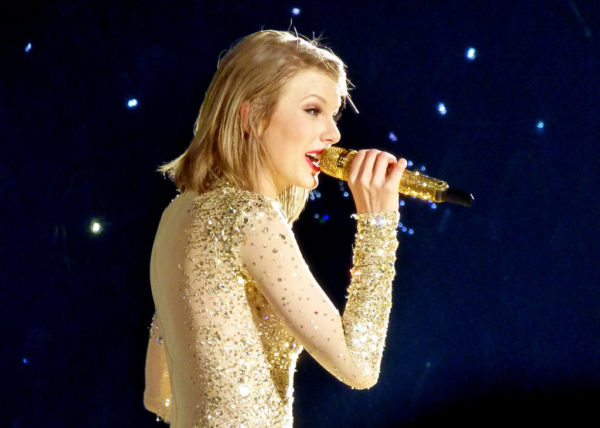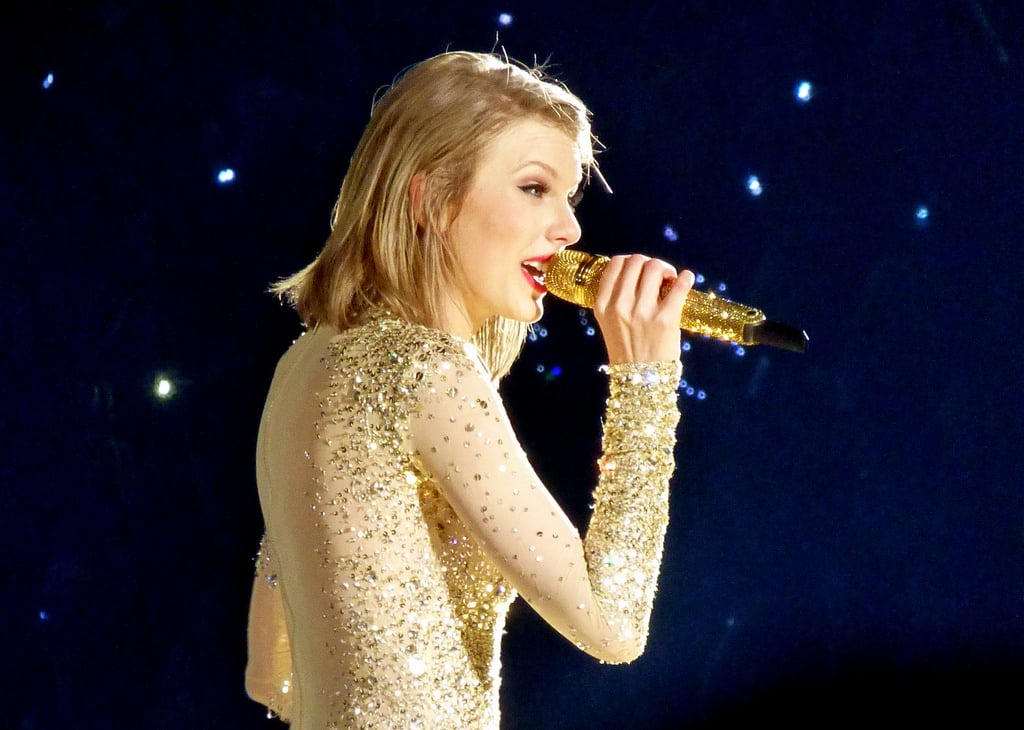
Taylor Swift released her sixth studio effort, “Reputation” (stylized as “reputation”), on Friday, Nov. 10. She put out four songs off of the album prior to its release, including two singles with music videos directed by Joseph Kahn, who helmed many of Swift’s most famous videos, including “Blank Space” and “Bad Blood.” Commercially, the singles underperformed, especially when compared with the blockbuster success of her last LP “1989,” yet Swift’s camp at Big Machine Records seems hopeful that she can top her previous best weekly album sales with the opening frame of “reputation.” They might be right. Sort of.
In this day and age where streaming is a huge component of chart success, Taylor Swift is inarguably one of the strongest forces of physical album sales and downloads alongside Adele. There have only been 20 albums in history to scan over a million copies in their first week of release, and a whopping three of those belong to Swift with 2010’s “Speak Now,” 2012’s “Red” and 2014’s “1989” all surpassing the million mark in their first frame. However, since the release of “1989”, streaming dramatically took over as the consumption method with the greatest market share, increasing by 59 percent, while album sales decreased 18 percent in comparison, according to Nielsen.
https://www.youtube.com/watch?v=3s1rvMFUweQ
The rise of streaming does not necessarily mean that Taylor Swift’s commercial dominance is over, but she has nevertheless treated streaming as a threat. She is well-aware of her weaknesses across streaming platforms, particularly against artists like Kendrick Lamar, Drake or Cardi B. The singer penned an open letter to Apple Music in 2015, a few months after she pulled all of her catalog from Spotify, addressing her move and explaining why “1989” was not going to be available for streaming. As sincere as the letter might have been, there was a strategic reason behind the act. No, Taylor Swift did not care if Apple Music paid her for each of her listeners. She most likely did not care if they paid up-and-coming musicians, either, or any other ethical problem with streaming. Her earnings from the physical album and iTunes downloads, likely increased due to the album’s inaccessibility on streaming platforms, did compensate for the lost streaming revenues and hence the lost streaming points on the multi-metric music charts like Billboard Hot 100 Singles Chart or Billboard 200 Albums Chart. “1989” ended up spending 11 weeks atop the albums chart and spawning five top-10 singles, three of which crowned the chart for a combined twelve weeks in 2014 and 2015; she calculated that she could survive without streaming and succeeded.
Swift and her team look determined to make “reputation” era one to remember, whose height must surpass that of her previous efforts. The album will not be on any streaming platforms for at least the first week of its release, and that window looks likely to be extended considering the delays in shipping to Asian music markets. (The album will be on the shelves as late as Nov. 28 in some of the largest music markets including India and Japan, as opposed to its Nov. 10 release in the United States.) Eliminating streaming is certainly going to help her, but in the grand scheme of things, her game plan gets more complicated.
For the pre-release of “reputation” and her upcoming world tour, for which no dates were released until the week after the album’s release, Swift teamed up with UPS, Target and Ticketmaster. If a fan purchases a copy of the album through UPS (and pay for the shipping), they are going to be automatically entered for a chance to win a trip to one of her tour stops and receive three digital copies of the album to gift their friends and family. (Those additional copies will likely be excluded from her sales sum, come the end of the chart week.) With each copy purchased through Target, the fans will have the option to get a copy of Target-exclusive magazines with “poetry, paintings, personal photos and fashion portraits” for an additional $5.
https://www.youtube.com/watch?v=EfeoNolf2rQ
So far, this appears to be an over-the-top version of the special edition treatment of new pop releases that every one is used to. Nonetheless, the Ticketmaster partnership is what makes the whole game plan somewhat problematic. As part of Ticketmaster’s Verified Fan program, Taylor Swift puts her fans in a virtual queue for tickets to her tour based on completion of a couple of tasks of differing values. The highest “boost” in the line is ordering the album (up to 13 times – Taylor’s lucky number) and purchasing merchandise from her web store, where you can find a wool hat for $40, a crop tee for $50 or a snake ring for $60. There are less financially challenging tasks that help boost one’s position, like watching her music videos ten times every day and joining her social following on Facebook, Twitter and Instagram, but they provide significantly lower advantage. To get off the waitlist and have the “priority status,” solely through social media, one would need to sacrifice a substantial amount of money and time.
Regardless of the exact way she gets there, Swift seems poised to break her personal record. Big Machine Records announced a week before the release that the pre-orders for the album hit the 400,000 mark, and that they were expecting Taylor to cross the two million mark within seven days of release. Target confirmed that this is the retailer’s biggest entertainment pre-sale of all time, across music, movies and books. They also agreed to dedicate their entire “hits” endcap to Swift’s music and place copies of “reputation” around the store, not just the music department, nationwide. She broke her TV and press absence, too, the weekend of the release, with live performances on “Scandal” and “Saturday Night Live” and a previously unscheduled appearance on “The Tonight Show” with Jimmy Fallon. Whether it is ethically controversial or not, her team’s plan seems to be working out, despite the disappointing performances of “Look What You Made Me Do” and “… Ready For It?”, the album’s first two commercial singles. On Nov. 10 only, the album reportedly scanned 700,000 copies in the United States, and grew that number past 1.05 million copies during its first four days of release. While the set might fall short of the two million predicted by Big Machine, it is slated to surpass the opening week of “1989” with 1.29 million copies and secures Swift her fourth album to score at least a million copies in a week. We are going to have to wait and see, however, if “reputation” will be able to eclipse the longevity and pop culture impact of “1989.”
Contact Ugur Dursun at mudursun ‘at’ stanford.edu.
